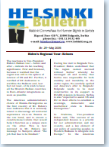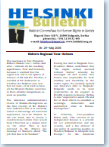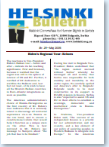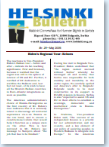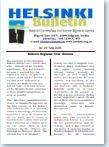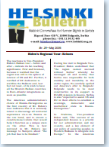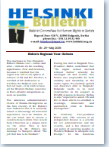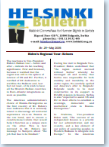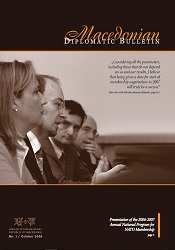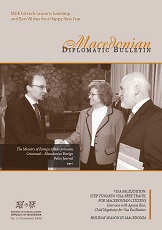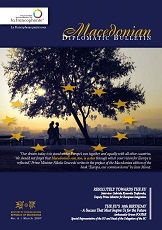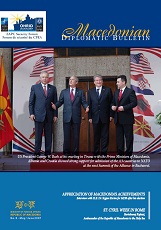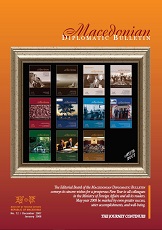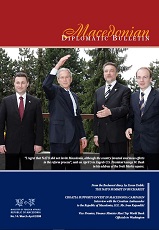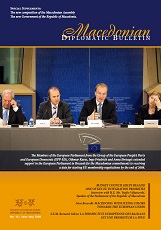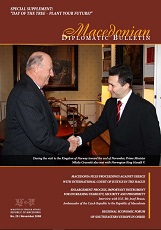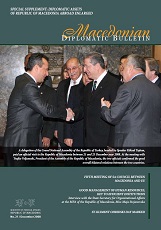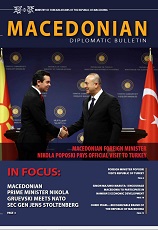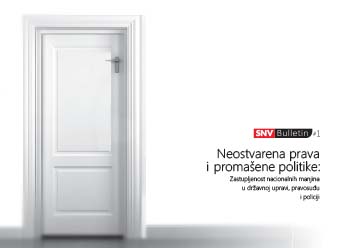HELSINŠKE SVESKE №25: LJUDI NA DRUŠTVENOJ MARGINI - Ljudska prava u psihijatrijskim bolnicama (septembar 2006 – mart 2007)
Author(s): Suzana Perović,Zoran Milojković,Marijana Obradović,Ljiljana Palibrk / Language(s): English,Serbian
Keywords: social margin; human rights; psychiatric hospitals; Kovin; quality of life; patients; law; mental health; mental illness; Vršac; Padinska Skela;
Arhitektonsko-tehnički uslovi, higijena i opremljenost u bolnicama u koje su smešteni psihijatrijski pacijenti na veoma je niskom nivou. Reč je o ustanovama koje imaju velike kapacitete, do 1000 bolesnika, koje su u suštini izolovane od društvene zajednice. Spavaonice su predviđene za smeštaj velikog broja ljudi. U bolnici u Kovinu, na akutnom odeljenju u sobama je smešteno više od 20 pacijenata. Visoki plafoni, nepostojeća toplotna i hidroizolacija, vlažni i memljivi zidovi, betonske podloge, prozori i vrata koji ne dihtuju, itd., često ne obezbeđuju ni minimum potrebnih uslova za smeštaj i lečenje bolesnika; nedostatak i prirodnog i veštačkog osvetljenja, nedovoljna provetrenost, hladni ili mlaki radijatori, deo su svakodnevnih uslova kojima su izloženi i bolesnici i zaposleno osoblje. U nekim odeljenjima (oligofreno odeljenje vršačke bolnice) životni uslovi se mogu definisati kao nečovečno ili ponižavajuće postupanje. Lečenje psihijatrijskih pacijenata u ovim ustanovama je neadekvatno, jer se, uglavnom, sastoji od farmakoterapije. Pacijenti nemaju mogućnost da učestvuju u izboru lekara, niti da donose bilo kakve odluke u pogledu terapije i načina lečenja kojem se podvrgavaju. Podaci iz medicinskih kartona nisu dostupni pacijentima, članovima porodice, niti zastupnicima ili advokatima pacijenata. Kada se nalaze u ulozi somatskih pacijenata, psihijatrijski pacijenti su diskriminisani u drugim zdravstvenim ustanovama. Zdravstveno osoblje u drugim ustanovama, za lečenje somatskih bolesti, odbija da tretira i leči psihijatrijske pacijente na isti način kako se leče drugi pacijenti. Veoma mali broj pacijenata, uglavnom onih koji posećuju dnevne bolnice u sklopu psihijatrijskih bolnica, ima mogućnosti da koristi i druge pristupe u tretmanu osim farmakoterapije. Za sve ostale, što znači za „veliku većinu,“ važi „skladištenje“ u psihijatrijske bolnice koje ih, praktično, izdvaja iz zajednice, čime se pospešuje njihovo brže propadanje. Veliki broj pacijenata u ovim bolnicama, faktički, živi u njima po 10 ili 20 godina, jer nema gde da ode iz bolnice i ne postoji adekvatnija institucija koja bi ove pacijente prihvatila i omogućila im postepenu integraciju u društvo. Osoblje u bolnicama (nemedicinsko, kao i srednji medicinski kadar i više medicinske sestre) nema adekvatnu obuku za rad u psihijatrijskim bolnicama i tretman psihijatrijskih pacijenata. Osoblje nije obučeno tehnikama ne-fizičkog i manuelnog obuzdavanja agitiranih pacijenata. Srednje medicinsko osoblje i nemedicinsko osoblje nije dovoljno nadzirano u popodnevnim i noćnim časovima. Mali broj zaposlenih ostaje u popodnevnim i noćnim smenama sa pacijentima i nema adekvatan nadzor nad njima. Osoblje je zbog uslova u bolnicama, neobučenosti, nedovoljnog broja zaposlenih, nepostojanja jasne procedure za reagovanje u kriznim situacijama, izloženo velikom stresu. Osoblje je posebno nezadovoljno zbog malih primanja, s obzirom na težinu posla kojim se bave i uslove pod kojima rade.
More...
